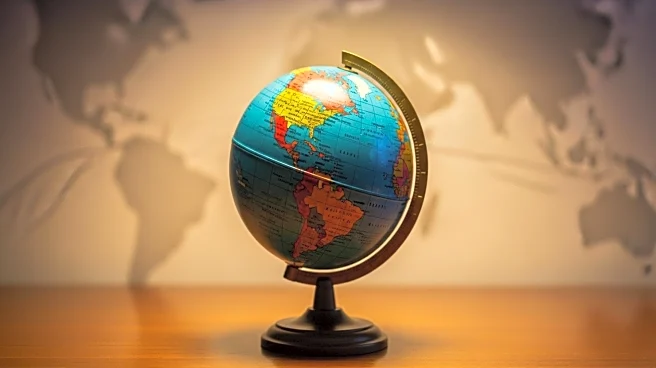What's Happening?
Commerce and Industry Minister Piyush Goyal has declared that India is on a path to becoming self-reliant, emphasizing that no other country can obstruct this progress. This statement follows the imposition of an additional 25% American duty on Indian goods, raising the total tariff to 50% under President Trump's reciprocal tariff policy. The increased tariffs are a response to India's oil trade relations with Russia, which have been criticized by the U.S. Despite these pressures, the Indian government, led by Prime Minister Narendra Modi, has reaffirmed its commitment to continue oil imports from Russia. Goyal's remarks align with Modi's 'Atmanirbhar Bharat' initiative, which was highlighted in his Independence Day speech as a cornerstone for India's development across various sectors, including defense and technology.
Why It's Important?
The assertion of self-reliance by India is significant in the context of global trade dynamics and geopolitical tensions. The U.S. tariffs could impact Indian exports, affecting industries reliant on American markets. However, India's stance on self-reliance and continued oil imports from Russia indicates a strategic shift towards reducing dependency on foreign nations. This move could bolster domestic industries and enhance national security by fostering indigenous capabilities. The broader implications include potential shifts in international trade relations and economic policies, as India seeks to strengthen its position as a global economic player.
What's Next?
India's commitment to self-reliance may lead to increased investment in domestic industries and innovation, particularly in sectors like defense and technology. The government may introduce policies to support local manufacturing and reduce import dependency. Additionally, diplomatic negotiations with the U.S. could continue, aiming to resolve trade tensions and explore mutually beneficial agreements. Stakeholders, including businesses and policymakers, will likely monitor these developments closely to assess their impact on trade and economic growth.
Beyond the Headlines
The emphasis on self-reliance raises questions about the ethical and cultural dimensions of economic independence. It challenges the traditional reliance on global supply chains and encourages a reevaluation of national priorities. This shift could lead to long-term changes in consumer behavior and business practices, as local products gain prominence. Furthermore, the geopolitical implications of India's stance may influence regional alliances and global power dynamics.









